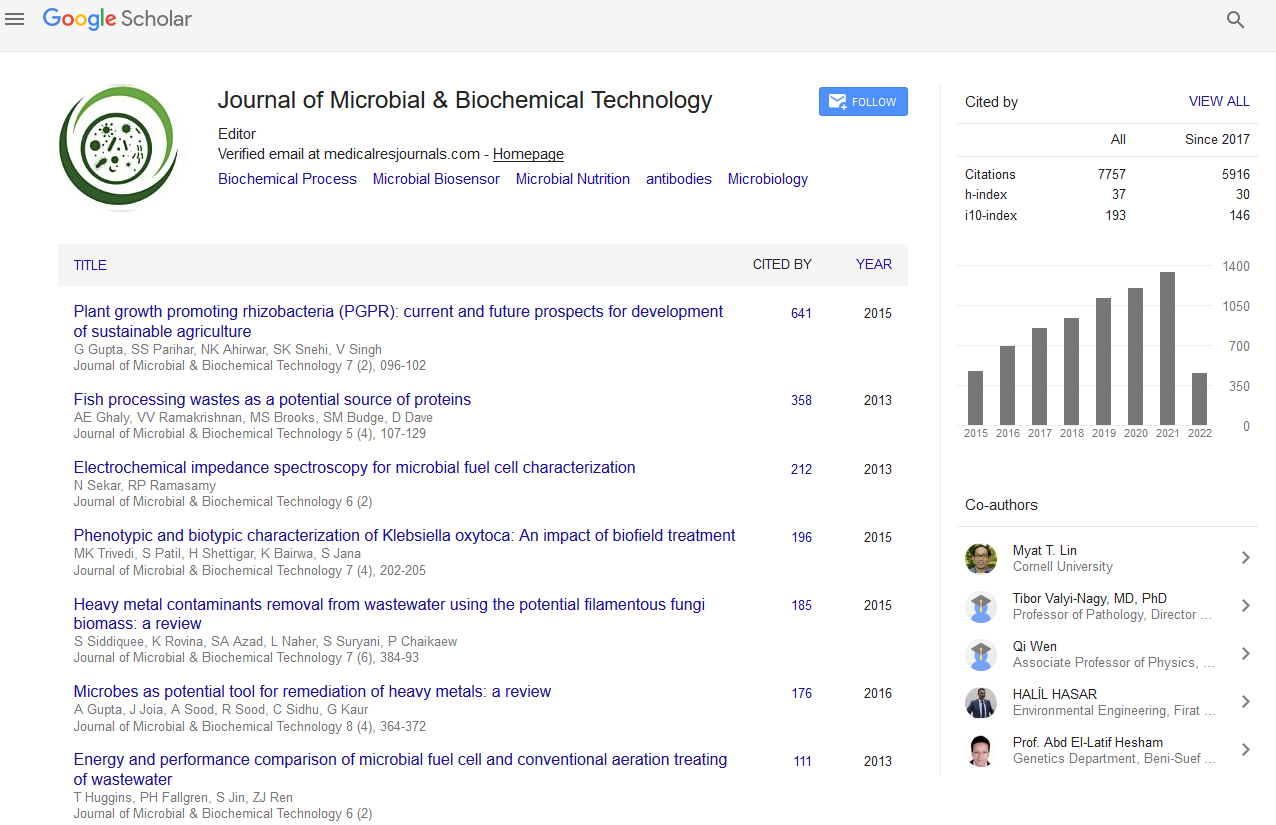PMC/PubMed Indexed Articles
Indexed In
- Academic Journals Database
- Genamics JournalSeek
- Academic Keys
- JournalTOCs
- China National Knowledge Infrastructure (CNKI)
- Scimago
- Access to Global Online Research in Agriculture (AGORA)
- Electronic Journals Library
- RefSeek
- Directory of Research Journal Indexing (DRJI)
- Hamdard University
- EBSCO A-Z
- OCLC- WorldCat
- SWB online catalog
- Virtual Library of Biology (vifabio)
- Publons
- MIAR
- University Grants Commission
- Geneva Foundation for Medical Education and Research
- Euro Pub
- Google Scholar
Useful Links
Share This Page
Journal Flyer

Open Access Journals
- Agri and Aquaculture
- Biochemistry
- Bioinformatics & Systems Biology
- Business & Management
- Chemistry
- Clinical Sciences
- Engineering
- Food & Nutrition
- General Science
- Genetics & Molecular Biology
- Immunology & Microbiology
- Medical Sciences
- Neuroscience & Psychology
- Nursing & Health Care
- Pharmaceutical Sciences
The role of adenylate cyclase toxin during Bordetella infection
CO-ORGANIZED EVENT: International Conference on Chronic Diseases & 6th International Conference on Microbial Physiology and Genomics
August 31-September 01, 2017 Brussels, Belgium
Solomon Taye
University of Gondar, Ethiopia
Scientific Tracks Abstracts: J Microb Biochem Technol
Abstract:
Pertussis or whooping cough is an acute respiratory disease resulting from mainly Bordetella pertussis infection. Pertussis is characterized by a �??whooping�?? sound when the person breathes in. It remains a significant cause of morbidity and mortality worldwide. Despite the availability of effective vaccines in preventing infection by B. pertussis, an estimated 50 million cases occur each year, resulting in 295,000 deaths. The majority of these cases occur in developing countries, where malnutrition and limited supportive care contribute to the case fatality rate in infants. B. pertussis possesses type I and type III secretory system to translocate its effector proteins, where they act on diverse host cell pathways and outer membrane proteins. These effector factors of B. pertussis are; filamentous hemagglutinin, fimbriae, pertussis toxin, adenylate cyclase toxin, pertactin, dermonecrotic toxin, tracheal cytotoxin and endotoxin. Adenylate cyclase is an important invasive toxin secreted by B. pertussis by a type I secretion �??channel-tunnel�?? mechanism formed by the CyaBDE proteins. Adenylate cyclase is a member of the repeat in toxin family of bacterial pore-forming toxins. Adenylate Cyclase binds host myeloid phagocytic cells expressing alpha-M2 integrin receptor (CD11b/CD18, CR3 or Mac-1), such as macrophages, neutrophils and dendritic cells. Adenylate cyclase inhibits phagocytosis, inactivates GTPase RhoA, hemolyze erythrocytes, regulates electrolyte-binding proteins, used as delivery vectors for internalization of immunogenic epitopes and possible vaccine.
Biography :
Solomon Taye has an expertise in the field of Medical Microbiology, Immunology and parasitology. He is a lecturer at Wachemo University which is found in South Ethiopia. Besides academic activities he is conducting researches which benefit the surrounding community in Ethiopia and the global scientific community in general. His research scope is wide ranging from host-pathogen interaction to microbial cell signaling. He has an enormous interest to understand immune evasion mechanisms of pathogenic microbes which in turn boosts our knowledge to formulate the best drug and laboratory diagnostic approach. Currently, he is working on the Burden of pertussis in Ethiopia.


